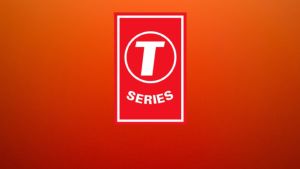Reviews
User Score
Rate This
Descriptions:
Pop culture (or popular culture) refers to the body of ideas, perspectives, attitudes, memes, images, and other phenomena prevalent within mainstream society at any given point in time. This phenomenon includes various forms of entertainment such as music videos, television programs, film reviews, fashion, and social media trends that shape everything from individual identities to collective social norms. Pop culture’s impact is profoundly significant on modern societies at all levels – from individual identities to collective societal norms and more.
Shaping Identity and Values
Pop culture plays an essential role in shaping individual identity. Through music videos, films, and social media platforms like Beyonce’s and Taylor Swift’s performances promoting empowerment and self-acceptance messages resonant with audiences, sparking changes to personal values and self-perceptions.

Pop culture often reflects and amplifies societal values. For instance, the representation of diverse cultures and identities in media has contributed to a wider acceptance of multiculturalism. Shows like “Black Panther” and “Crazy Rich Asians” not only enjoyed commercial success but also ignited conversations around race, class, and representation in Hollywood – creating an impactful shift that encourages greater inclusivity across society.
Trends and Consumer Behaviour
Pop culture exerts immense power to shape consumer behavior by driving trends in fashion, technology and lifestyle choices. Fashion icons like Rihanna or Kim Kardashian can set trends that millions follow almost overnight; social media platforms such as Instagram and TikTok further intensify this phenomenon by spreading these trends rapidly between users. “Viral” challenges or styles serve as evidence that pop culture dictates consumer choices quickly.
Additionally, brands are using pop culture to connect with younger audiences. Collaborations between celebrities and brands, like Nike’s partnership with athletes or makeup lines endorsed by influencers–show how closely linked pop culture and marketing strategies are. This relationship not only affects purchases made but also how individuals perceive brands and their values.
Social Movements and Activism
Pop culture has emerged as an effective form of social activism. Artists and influencers use their platforms to raise awareness about crucial issues like climate change, racial injustice, mental health, and more. Movements such as #MeToo gained significant traction thanks to celebrity support – including those sharing their experiences publicly – helping mobilize communities around important causes while inspiring individuals to get involved with activism.

Television shows and films often address pressing social issues directly, with shows like “The Handmaid’s Tale” or films like “12 Years a Slave” providing direct commentary on gender rights or historical injustices. By engaging audiences emotionally through storytelling, pop culture can inspire action to address society-wide problems.
Technology’s Role
Digital technology has revolutionized pop culture immensely. Services like Netflix have altered how content is consumed, enabling binge-watching of entire seasons of shows at once. Not only has this changed viewing habits but it has altered narrative structure too–often leading to more complex narratives that address contemporary social issues.
Social media platforms play a pivotal role in this development by providing direct interaction between creators and audiences. Fans can interact directly with their favorite celebrities in real time, impacting content creation with feedback or trends from fans influencing content production. With anyone contributing their voice and perspective to cultural conversations, more voices will be heard than ever.
Conclusion
Pop culture’s impact on modern society cannot be overstated. From shaping identities and consumer behavior to fueling social movements and shaping technological advancements, its significance cannot be ignored. Understanding its influence enables individuals to navigate modern life while also realizing its power over worldviews and societal norms.
Discover the “best places to find fashion in New York” with curated insights from iconic shopping districts like SoHo, Fifth Avenue, and the Garment District, showcasing both luxury and unique boutiques.




